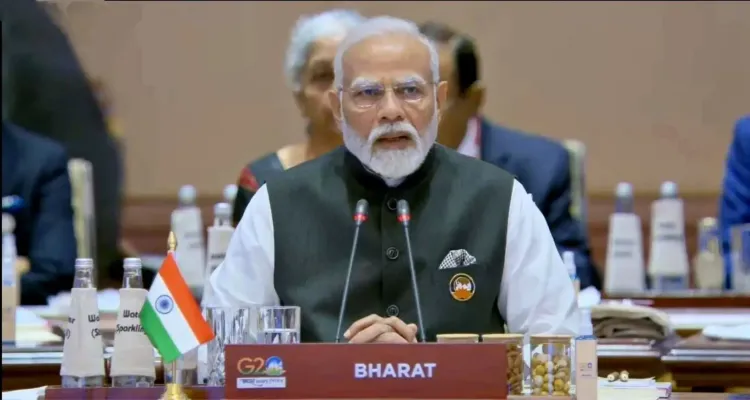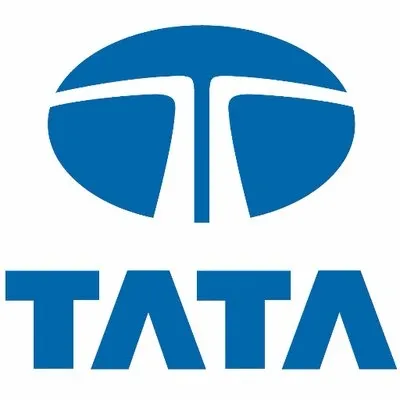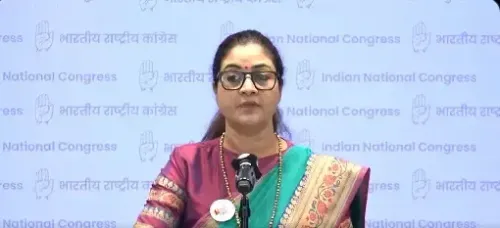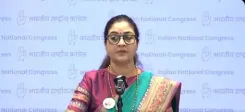In the true spirit of 'Vishwa Bandhu', India sets aside Rs 5,483 crore for international aid in Union Budget 2025

Synopsis
Key Takeaways
- India allocates Rs 5,483 crore for foreign aid.
- Bhutan receives the largest share at Rs 2,150 crore.
- Maldives sees a significant increase in assistance.
- Funding for disaster relief rises to Rs 64 crore.
- Expansion of diplomatic missions supported with Rs 4,206.22 crore.
New Delhi, Feb 1 (NationPress) The Ministry of External Affairs (MEA) has earmarked Rs 5,483 crore for assistance to foreign countries, a modest increase from last year's Rs 4,883 crore, as revealed in the Union Budget 2025-26 on Saturday.
The MEA's total allocation stands at Rs 20,516.61 crore, which is lower than the revised estimate of Rs 25,277 crore for 2024-25.
A significant portion of Rs 6,750 crore is dedicated to the Overseas Development Assistance portfolio, reflecting a 20 percent increase from last year's Rs 5,667.56 crore. This encompasses funding for soft loans, grants for foreign nations, cultural and heritage projects, as well as international training programs.
Approximately 64 percent of the Rs 4,320 crore allocated for development initiatives will benefit India's immediate neighbors, adhering to demand-driven projects. These initiatives will include substantial infrastructure undertakings such as hydropower plants, power transmission lines, and integrated check posts, alongside smaller grassroots community development projects and training programs.
Bhutan, India's closest ally, receives the largest share of the external aid budget with Rs 2,150 crore. The revised allocation for the previous year was Rs 2,543.48 crore.
This allocation aligns with India's 'Neighbourhood First' policy, which prioritizes regional development and connectivity.
Last year, India announced a doubling of its financial support for Bhutan's five-year plans from Rs 5,000 crore to Rs 10,000 crore.
One notable aspect of the Budget is the continuation of Rs 100 crore for the development of Chabahar Port in Iran, aiming to enhance regional connectivity, particularly through the International North-South Transport Corridor (INSTC).
This follows a 10-year agreement India signed with Iran for operations at the Shahid Beheshti terminal and an investment of $120 million for port infrastructure development.
In contrast, the Maldives has seen the most significant increase in assistance, rising from Rs 470 crore in the revised 2024-25 budget to Rs 600 crore in 2025-26.
This increase is in addition to the financial support provided by India to help the island nation address its balance of payments crisis in 2024.
While the Indian government resubscribed to these bonds and offered other assistance, the Maldives government struggled to establish economic and security cooperation with China.
Nepal and Bangladesh received budget allocations of Rs 700 crore and Rs 120 crore respectively, while Mauritius experienced a reduction in its allocation to Rs 500 crore from Rs 576 crore in the previous term.
Sri Lanka continues to receive the same amount as last year, which is Rs 300 crore.
Myanmar's allocation has been cut from Rs 400 crore to Rs 350 crore, while Seychelles' assistance has decreased from Rs 37 crore to Rs 19 crore.
Afghanistan's aid, which was reduced from Rs 100 crore to Rs 50 crore in the revised 2024-25 Budget, has been restored to Rs 100 crore.
The allocation for African nations has increased from Rs 200 crore to Rs 225 crore.
Additionally, assistance grants for countries in Eurasia and Latin America have been doubled to Rs 100 crore.
Funds allocated for disaster relief have risen from Rs 60 crore to Rs 64 crore, reflecting India's proactive approach in global humanitarian responses.
Increased funding for diplomatic missions and citizen services
The Budget also facilitates the expansion of India's diplomatic presence. The allocation for Indian embassies and missions abroad has risen by 9 percent to Rs 4,206.22 crore, following the establishment of ten new diplomatic posts in 2024-25.
Furthermore, the budget for citizen-centric services, including passport issuance and the implementation of the Passport Seva Project 2.0, has nearly doubled from Rs 1,907.24 crore in 2024-25 to Rs 1,913.47 crore in 2025-26.
This allocation encompasses funding for the Indian Council of Cultural Relations, the South Asian University, and various international engagements. However, specific outlay details for EXIM Bank provisioning are not included in this document, as officials indicate these will be provided dynamically based on need.
India's focus on 'Vishwa Bandhu', coupled with its 'Neighbourhood First' and 'Look East' policies, underscores its commitment to strengthening regional bonds, nurturing key allies, and expanding its global development footprint.









